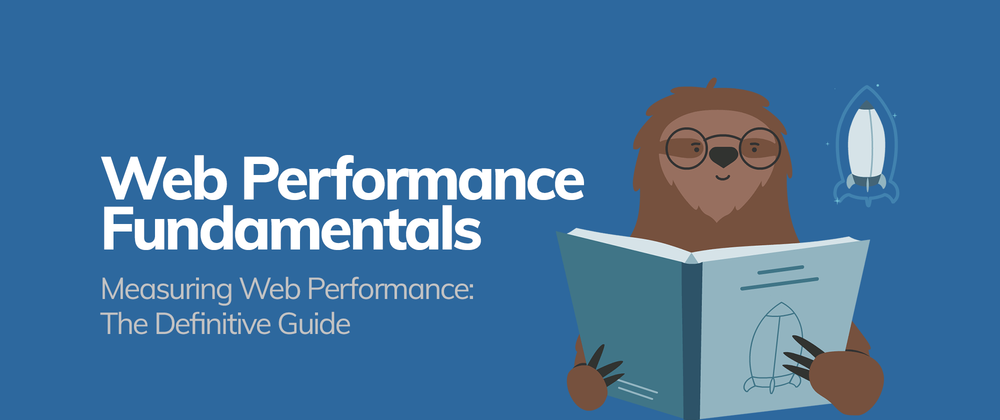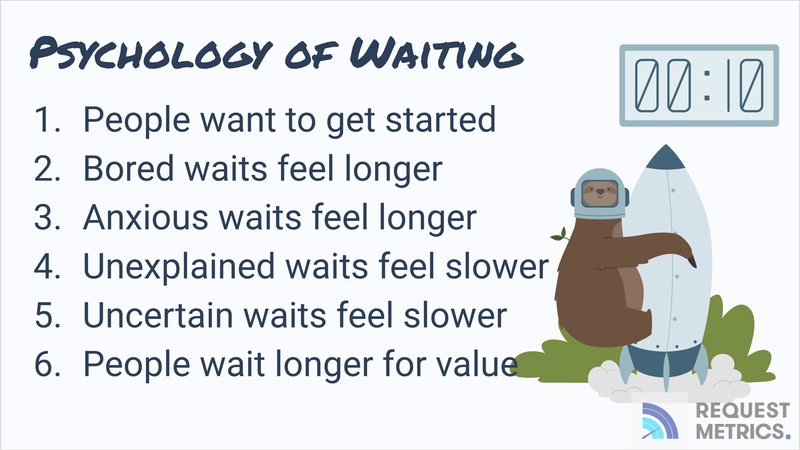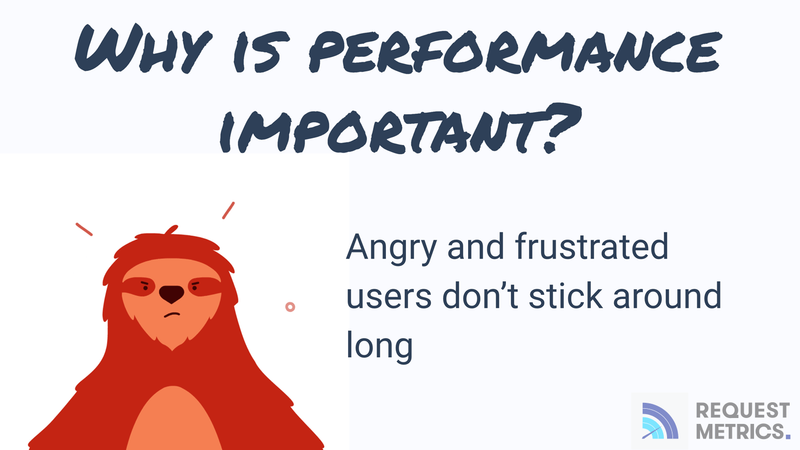This is an excerpt from Chapter 1 of The Definitive Guide to Measuring Web Performance.
In this first chapter, we'll start with the basics of web performance, what it is, and why you need to care about it.
You'll see why web performance has never been more important. Let's go!
What is Web Performance?
Web performance is about how fast your website feels to your users. A slow website causes frustration by slowing down the user doing their work. These user feelings are sometimes called Perceived Performance.
Feelings are difficult to measure. Each person can have a different expectation for how fast a website should be, based on what the user is doing and the kind of website. Users probably won’t wait 6 seconds for a click-bait story, but will wait 10 seconds or longer for Gmail to start.
Simon Hearne shared that in the psychology work in “The Psychology of Waiting Lines”, David Maister defines 6 laws that people tend to follow when waiting in line, or waiting for a website:
1. People want to get started
You’re excited about an idea, or you’ve finally overcome procrastination to start. When you open up a web application to begin your work, you don’t want to wait for it. Slowness seems slower when you’re eager to get started with your work.
2. Bored waits feel longer
You’re sitting in the back seat on a long road trip. Back in the days before cellphones and handheld games. All there was to do was stare out the window. That trip took forever. It felt longer than it was because you were so bored.
Same with a website. When you’re avoiding your work and scrolling through Twitter, if a link is slow to load, you lose interest real fast.
3. Anxious waits feel longer
When you are nervous about the content of a page or the results of a request, delays feel longer than they are. Imagine waiting for a medical test result to load, or see the status of a mortgage application. Watching the loading spinners feels slow because of the importance of the result.
4. Unexplained waits feel slower
You’ve probably bought lots of things on the internet, and you know how it works. So when you visit an online store and add a product to your cart, you have an expectation of how long it should take. But as the seconds tick by, it feels wrong. You didn’t expect to have to wait here, and you start second-guessing if you really need that new graphic t-shirt.
5. Uncertain wait times feel slower
You submit a form and see a loading spinner with the text, “please wait”. Wait? How long? As the seconds pass, you think that maybe the form failed and needs to be resubmitted. You may even decide to abandon and try something else. When the user doesn’t understand how long they will wait, the wait time feels exaggerated.
6. People wait longer for value
When you click on that hot celebrity gossip link at TMZ, you’ll wait 4 or 5 seconds for it to load. But if it’s not ready, you’ll probably lose interest and move on. You should probably get to work.
So you open your work GMail account. GMail is a big webapp, and sometimes it takes 6 seconds or longer to load. But you’ll wait for it, because it’s important.
Why is Web Performance Important?
You’ve probably seen the case studies. Lots of eCommerce sites, marketing sites, and software services have shown a correlation between performance improvements and the success of their website.
Slow web pages frustrate users and make them less likely to stick around. Less likely to buy that thing, click on your link, or subscribe to your service. Google can see this in search behavior–people are less likely to stay on slow sites.
Why Does Google Care About My Performance?
Google wants search results to be as relevant and useful as possible–slow sites are not very usable. Search users are more likely to bounce off a slow search result than a fast one.
Performance is such a strong signal to Google that website performance is considered part of a website’s search ranking. So if for no other reason, make sure your site is fast so you don’t lose ranking to your competitors that do.
How does Google measure your website performance? The next chapter covers all the metrics.









Latest comments (0)